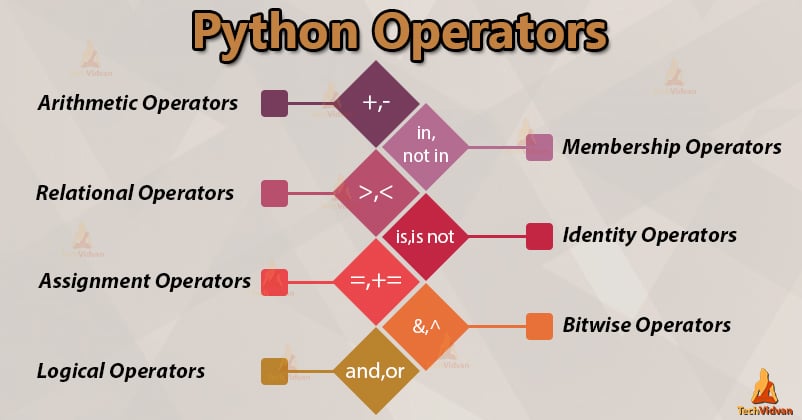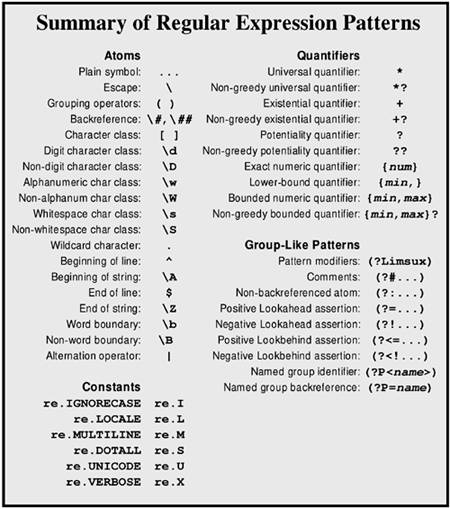
The non-named capturing groups do not capture substrings named capturing groups still work as intended, as well as the implicit capturing group number 0 corresponding to the entire match. There is no equivalent for this option in Perl regular expressions. The greediness of the quantifiers is inverted: *, +, ?, ?, etc.) become greedy. QRegularExpression.InvertedGreedinessOption This option corresponds to the /x modifier in Perl regular expressions.
Regular expression not operator python code#
This can be used to increase the readability of a pattern string as well as put comments inside regular expressions this is particularly useful if the pattern string is loaded from a file or written by the user, because in C++ code it is always possible to use the rules for string literals to put comments outside the pattern string. Moreover, an unescaped sharp ( #) outside a character class causes all the following characters, until the first newline (included), to be ignored. QRegularExpression.ExtendedPatternSyntaxOptionĪny whitespace in the pattern string which is not escaped and outside a character class is ignored. This option corresponds to the /m modifier in Perl regular expressions. The caret ( ^) and the dollar ( $) metacharacters in the pattern string are allowed to match, respectively, immediately after and immediately before any newline in the subject string, as well as at the very beginning and at the very end of the subject string.

This option corresponds to the /s modifier in Perl regular expressions. ) in the pattern string is allowed to match any character in the subject string, including newlines (normally, the dot does not match newlines). QRegularExpression.DotMatchesEverythingOption This option corresponds to the /i modifier in Perl regular expressions. The pattern should match against the subject string in a case insensitive way. This match type reports a partial match as soon as it is found, and other match alternatives are not tried (even if they could lead to a complete match). QRegularExpression implements this behavior when using the PartialPreferFirstMatch match type. This is not to be taken literally – the engine will never try to access any character after the last one in the subject. This implies that the regular expression engine may assume that there are other characters beyond the end of the subject string. In this case, the regular expression engine should report a partial match, so that we can match again adding new data and (eventually) get a complete match. The obvious problem is what happens if the substring that matches the regular expression spans across two or more chunks. In order to do so we would like to “feed” the large text to the regular expression engines in smaller chunks. Suppose that we want to find the occurrences of a regular expression inside a large text (that is, substrings matching the regular expression). Incremental matching is another use case of partial matching. captured ( 0 ) # captured = "abcdef" Incremental/multi-segment matching ¶ hasPartialMatch () # true captured = match. hasMatch () # false hasPartialMatch = match. PartialPreferCompleteMatch ) hasMatch = match. match ( "abcdef", 0, QRegularExpression. Re = QRegularExpression ( "abc \\ w+X|defY" ) match = re. Partial matching is mainly useful in two scenarios: validating user input in real time and incremental/multi-segment matching.


It never happens that a QRegularExpressionMatch reports both a partial and a complete match. Note that asking for a partial match can still lead to a complete match, if one is found in this case, hasMatch() will return true and hasPartialMatch() false. When a partial match is found, no captured substrings are returned, and the (implicit) capturing group 0 corresponding to the whole match captures the partially matched substring of the subject string. If a partial match is found, then calling the hasMatch() function on the QRegularExpressionMatch object returned by match() will return false, but hasPartialMatch() will return true. Note that a partial match is usually much more inefficient than a normal match because many optimizations of the matching algorithm cannot be employed.Ī partial match must be explicitly requested by specifying a match type of PartialPreferCompleteMatch or PartialPreferFirstMatch when calling match or globalMatch. A partial match is obtained when the end of the subject string is reached, but more characters are needed to successfully complete the match.


 0 kommentar(er)
0 kommentar(er)
